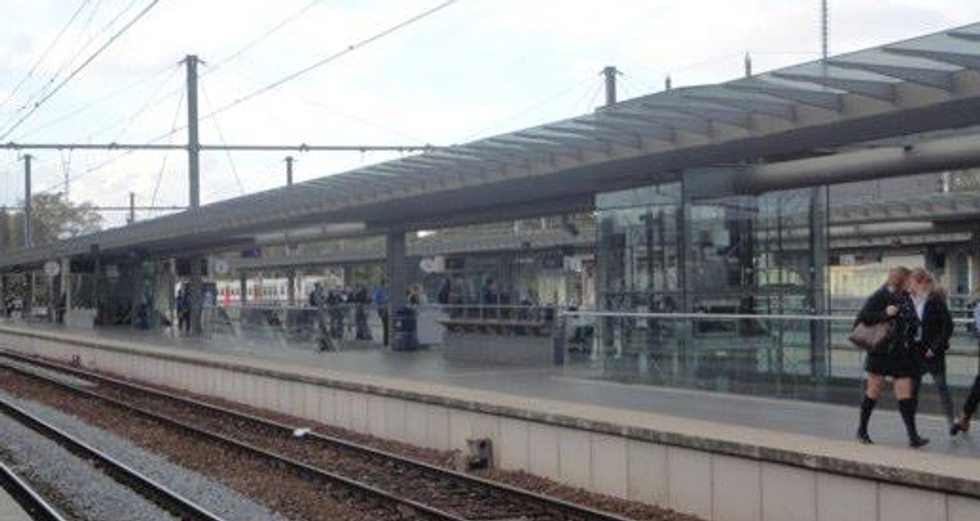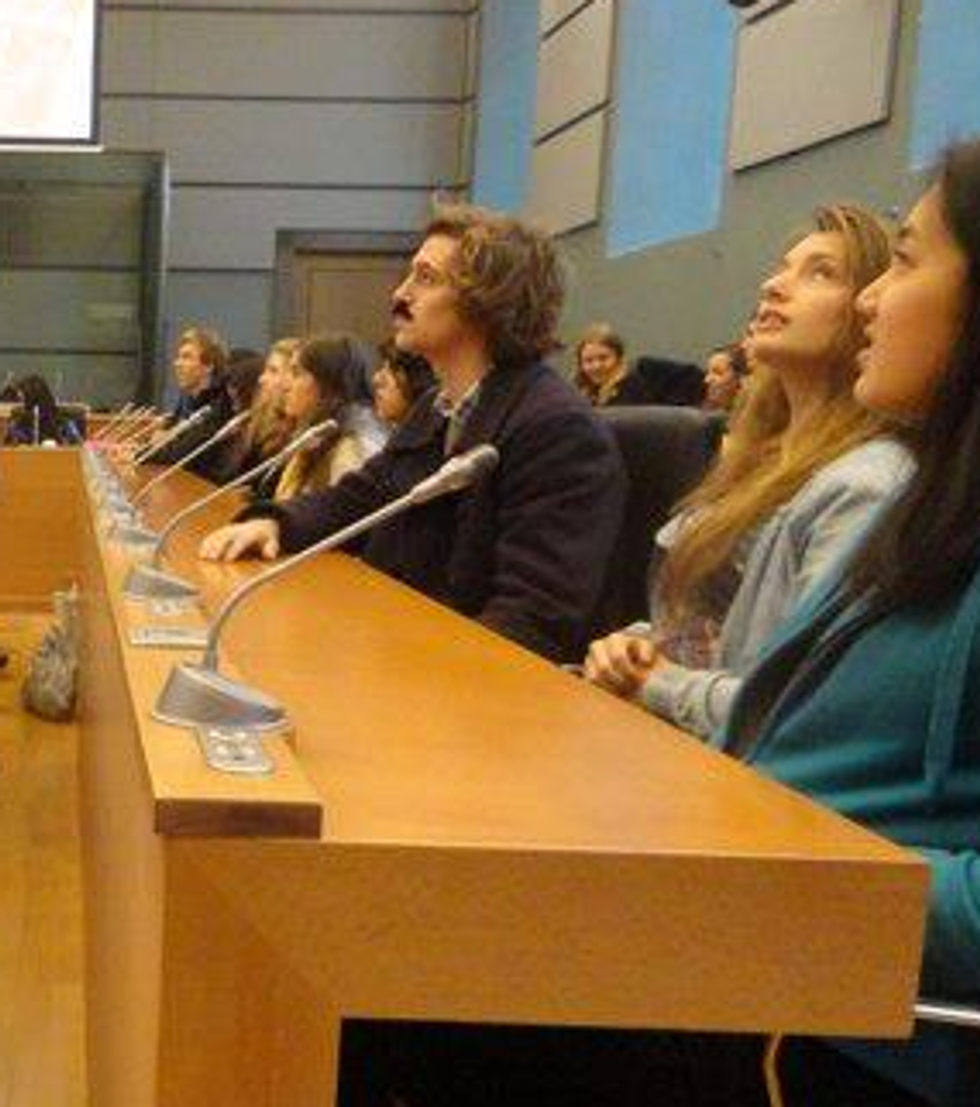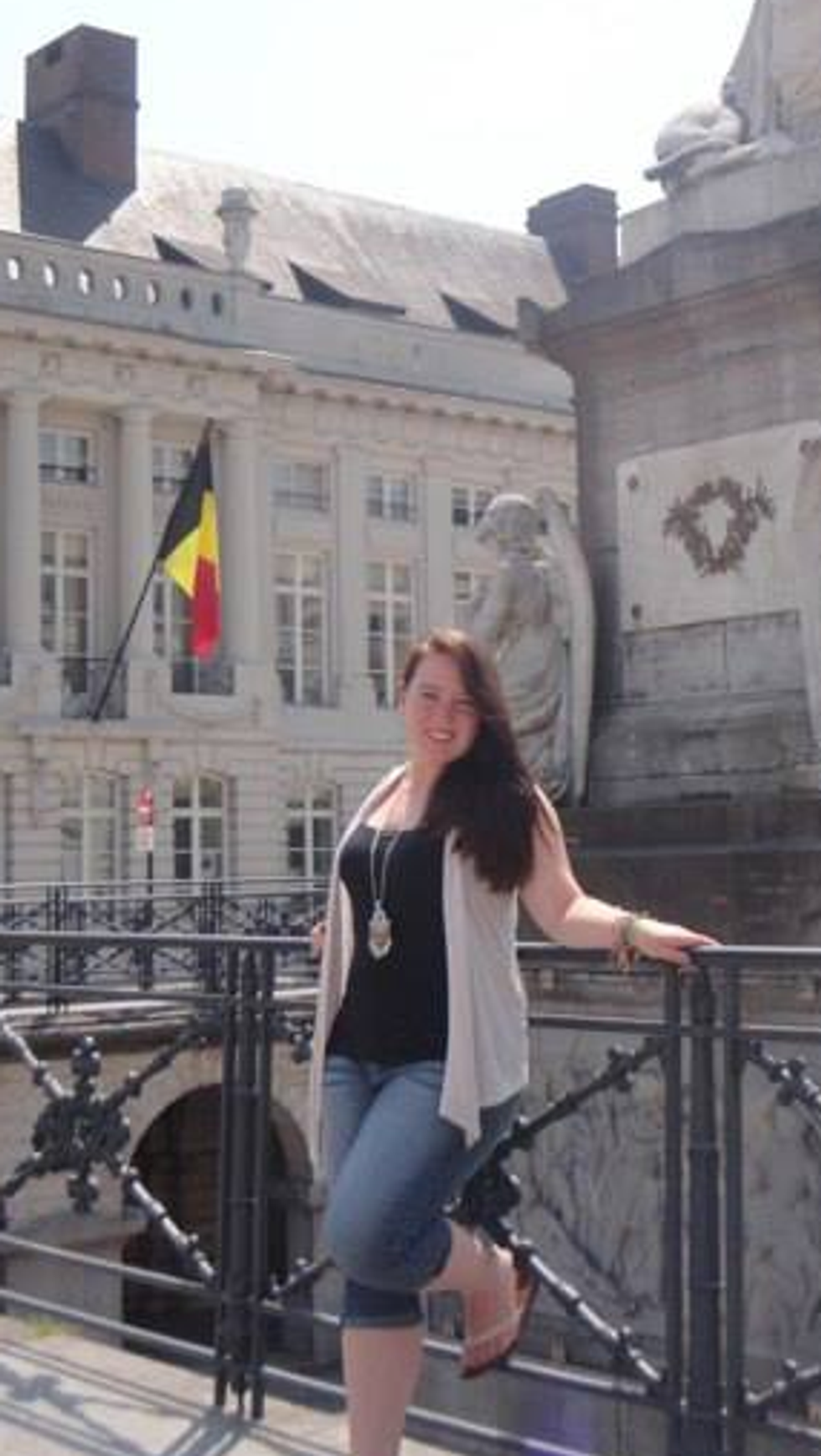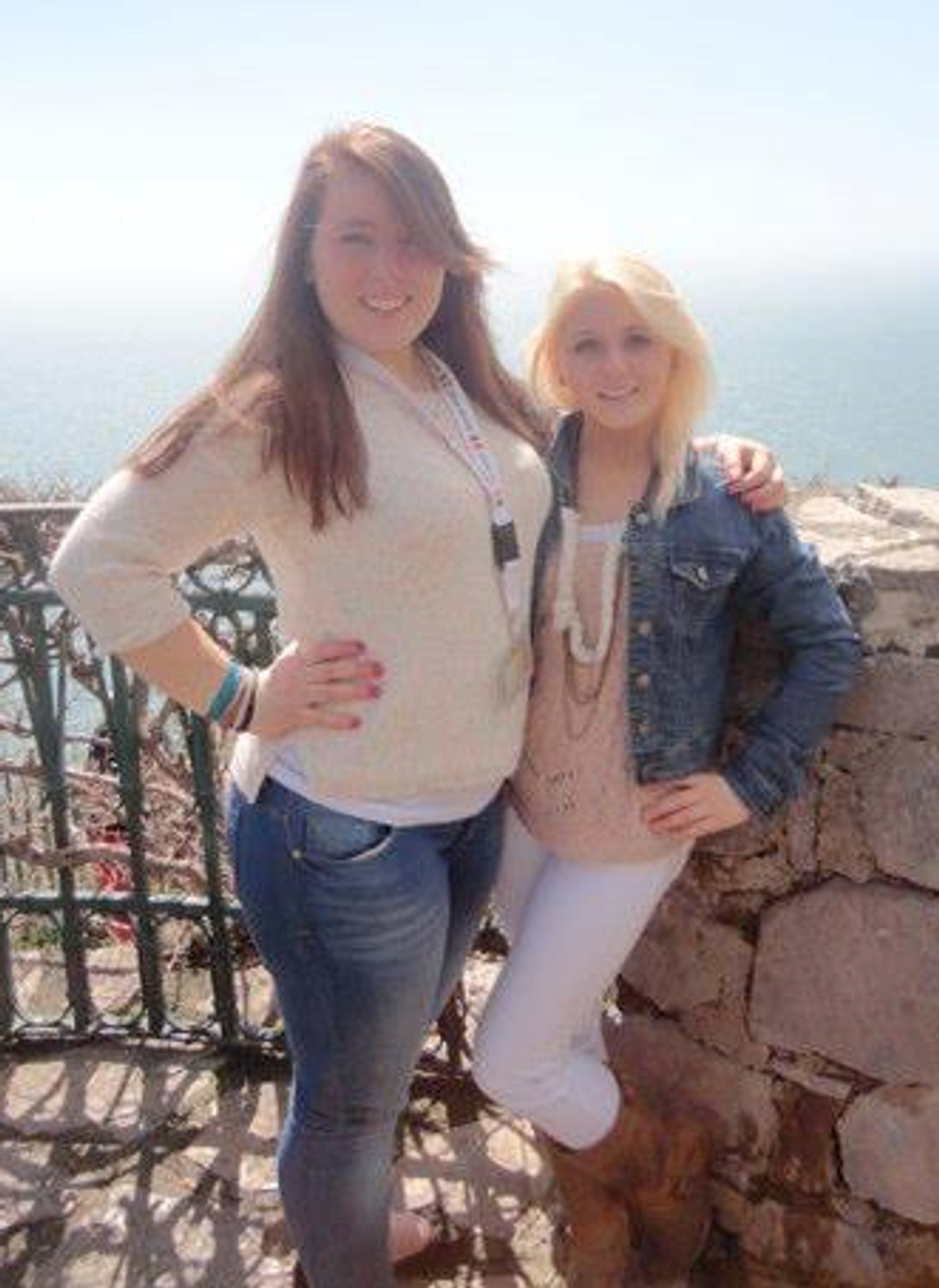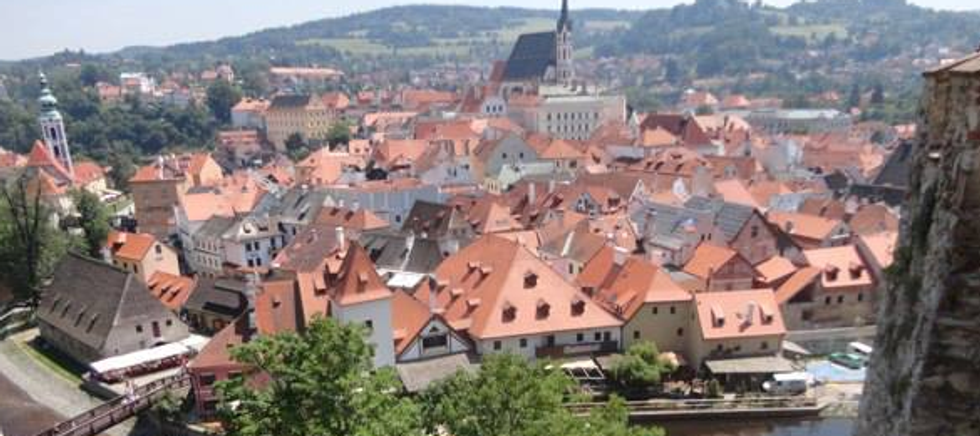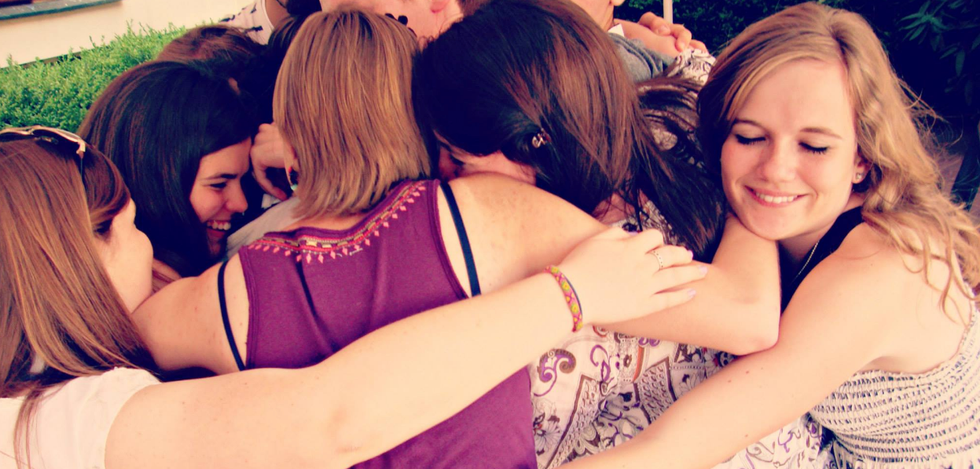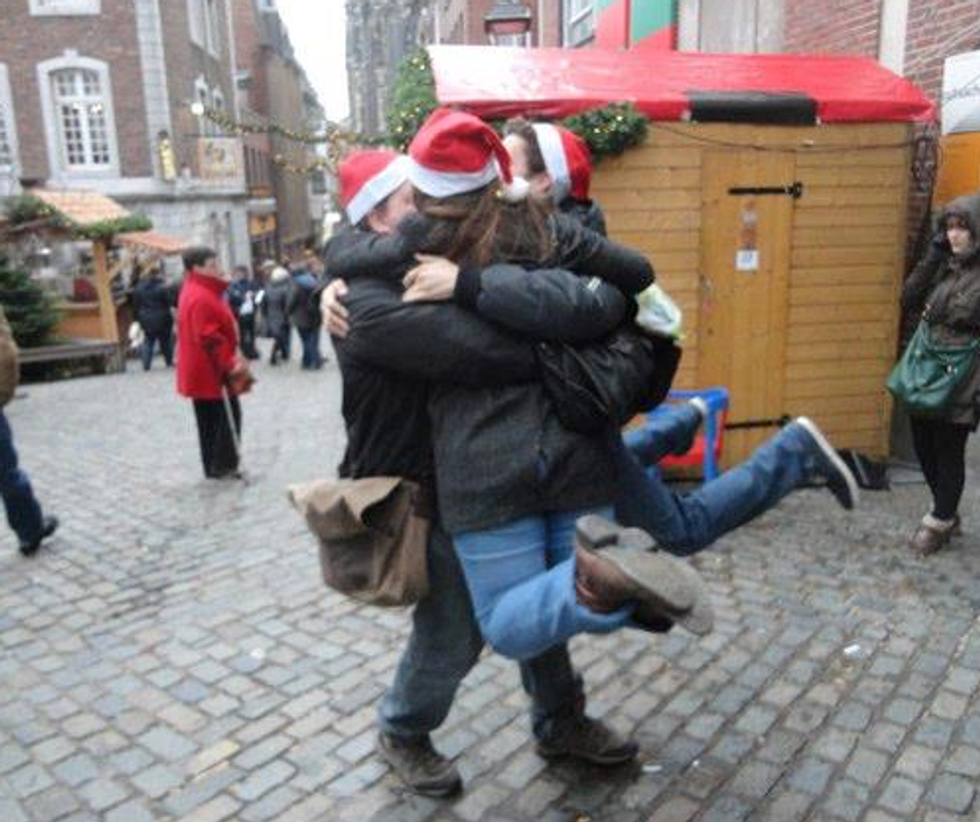Being “free” from school after twelve years is an amazing feeling, but there’s no arguing that high school can only prepare you for so much. After high school, most graduating seniors spend their summer relishing in their new freedom before going off to college or a full-time job. I didn’t go straight off to college or “the real world” after high school; I took a gap year to be a Rotary Youth Exchange Student to Belgium and that year abroad taught me so much more than I ever learned at public school.
1. Public transportation
I grew up in a suburb of Binghamton, New York, about a three-hour drive from New York City. Like most of the kids in my high school, I got a car almost immediately after getting my license and could drive freely by the end of my junior year. Most people in my area had no need for public transportation - I didn’t even know we had a bus system until a friend told me they used it to get to work.
In Belgium however, many students at both the high schools and universities rely on public transportation to get to school in the morning. If there’s no bus, they don’t go to class - I actually missed a few days of classes because the buses were on strike and I had no other transportation. I quickly learned how to read a bus time-table, how to switch trains at the station when your connection is running late and how to get from the nearby city to my host family’s house at any time of the night. Having three different host families in three different suburbs meant that I had to learn a whole new system every few months as well, so by the end of my year, I had mastered the bus system forwards and backwards.
2. Public speaking
Being an exchange student from the United States, and particularly a student from New York, I was questioned daily about my life back home. While I had no problem speaking one-on-one with other classmates, I got nervous speaking in front of large crowds. That all changed when teachers and Rotarians started asking me to talk about my life in the United States, especially in French. My English teacher asked me to explain the electoral college system on the day of the 2012 Presidential Election - she gave me about five minutes warning.
Of course, I’d given presentations and speeches in high school, but I often had weeks or months to prepare, and they were in my native tongue. Being thrown into these public speaking situations taught me to think on my feet and speak honestly instead of cramming as much knowledge as I could into a time constraint in order to get a passing grade.
3. Overcoming social anxiety
I am a self-proclaimed social butterfly and I always have been. I have been performing in theatre companies and dance recitals since I was six years old and I have no fear of “putting myself out there.” That being said, I don’t often speak up in unfamiliar situations or in crowded areas, like cities or trains. I especially don’t make conversation with people when I can’t speak their language. I didn’t always have that luxury in Belgium.
Similarly to my classmates and teachers wanting to hear about my life back home, as soon as strangers on the street found out that I was foreign, they wanted to know everything about me. I’ve had more conversations with polite and curious strangers in Belgium that I can remember, but I’ve also had to run away from conversations when they turned sour. I once spent twenty minutes hiding on the other side of the train station from a slightly inebriated man who insisted that I must know President Obama personally. While most public schools in the US teach us not to talk to strangers, I found that I’m much more comfortable in crowds after being “thrown to the wolves” in Belgium.
4. Staying calm in stressful situations
While I was living in Belgium, I had the opportunity to travel to many historical places in my host country as well as throughout Europe. On many occasions, Rotary would take us to places in Belgium and set up a meeting place at train stations near our destinations. On our first outing to a World War II fort, I left school to catch the train from Huy to Liège, a 20 minute ride that ran several times per hour. When I reached Liège, I would have to take another train to our final destination, a train that only ran once every hour. The train from Huy to Liège ended up arriving fifteen minutes late and I missed the connection at Liège, along with several other exchange students that had taken the same train. These trips with Rotary were technically mandatory and we didn’t want to get in trouble for missing the event, so we called the director, who was able to drive down to Liège and pick us up. I was nervous about getting in trouble, but by the end of my year abroad, I was a pro at navigating public transportation delays and cancellations.
Another place I visited while on my exchange was Italy. This was a dream come true for me, but since there were eighty of us all on this trip, someone was bound to get lost at one point. My friend Donna was separated from our group in Florence during a free day in the city. My friends and I tried getting a hold of her through Facebook, retracing our steps, and calling her. I finally got a response from her - she was in a small restaurant off the main street. None of us recognized the name, but we were able to ask some police officers where to find the restaurant and we were reunited with Donna.
5. Encourage my curiosity and natural desire to learn
As a stereotypical Gemini, I am naturally curious and I love learning new things. I loved going to school and I always did well academically. In Belgium, my desire to learn everything and anything increased exponentially. I was practicing my French every day, learning new vocabulary, and meeting new people everywhere I went. I got to visit places of historical importance all over Europe and learn so much more than my history classes could ever do.
One of my favorite moments of my travels was when I went to Prague - In my AP European History class, we briefly mentioned the Defenestration of Prague, when several Catholic leaders were thrown out of a window and survived a seventy-foot drop. This became a catalyst to the Thirty Years’ War. While it wasn’t an important topic of discussion in terms of the entirety of European History, my class thought it was an interesting event and it became a running joke in our class. When I was in Prague, exploring the inner city and museums, I realized I was standing right next to the very same window that these men had been thrown out of. This connection between the classroom and the real world made the experience so much more real for me.
My exchange also taught me more about my personal learning style and capabilities than public school ever could. After my first few months in Belgium, I noticed that I was able to read and write in French very well, but I still struggled with holding conversations - I was able to understand what people were saying to me, but I often had to ask them to repeat what they had said. After changing to my second host family, I decided to take matters into my own hands and figure out how to improve my French. I started listening to French more - I watched Spongebob Squarepants with my younger host sister, I added a bunch of French music to my iPod and spent the evenings watching Netflix with French audio instead of English. Within a month, I could hold entire conversations with my host parents and classmates commented on how well I was able to speak my mind. Now that I am studying a new language in college, I am able to apply that same learning style to help me achieve the level of skill I want.
6. Cherish every relationship you make
My exchange gave me countless connections to the world. I have friends on every continent that speak many different languages. Many of us are connected by Facebook and Instagram, but we all have memories together of our time in Belgium. I’m also part of a group on Facebook that connects Rotary Youth Exchange Students from all over the world - people that I have never met or spoken to, but have a shared experience with. A lot of people will turn to this group for support during difficult times during exchange or to connect with students who will be going to the same country during the next year. Many people use it as an AirBnB site - they will post dates that they will be travelling to a country and ask for someone to host them or meet up and give them a tour of the city.
Having all of these contacts is personally difficult for me - I sometimes feel like if I’m talking to someone, I’m bothering them, or taking them away from something else they need to do. However, this wide network of exchange students has taught me the importance of keeping in contact and talking to people when I want to talk to them, not only because I need something from them. I try to post on their Facebook walls when I’m thinking of them or send them a funny video if it reminds me of them.
I’ve also learned not to take people for granted. Since I’ve come back to the United States, two students that I met on exchange have passed away. Sometimes, it feels unreal that I will never see them again. Sometimes, it hurts to look at old pictures and see them smiling. But I remember how much Shivi made me laugh when I was sad and how she always took care of other people before worrying about herself. I remember how kind Diego was and how he smiled every moment of the day. While I will never get to speak to them again, I know that the time I had with them was the best time of my life.
7. Don’t be afraid to leave your comfort zone.
When most people plan a vacation or a trip, it’s rarely for a full year. Now, I’m not saying that my exchange was a “vacation” by any means - it was the hardest year I’ve ever had. With that perspective, travelling is scary. I gave up everything I’ve ever known to go someplace that I knew next to nothing about.
A week after I found out where I was going on exchange, I was telling some friends at work about my plans for the next year and one of them mentioned that Belgium had been in the news that afternoon because of a shooting. As soon as I got home, I scoured the internet for more information. On December 13th, 2011, a 33-year-old man had thrown grenades into a crowded town square. Over 125 people were injured and there were five fatalities. The shooter committed suicide with a revolver and it was later found that he murdered a woman in his apartment before going to the town square.
I eventually ended up living in a suburb outside of Liège and I spent many afternoons in that very same town square. I was there after the one-year anniversary of the shooting, visiting the memorial after it had been dedicated. I also spent a lot of time in Brussels, including the airport, which was the site of bombings in March of this year. Liège and Brussels were my favorite places in Belgium - they are so much more than the sites of these violent attacks. I can imagine that current students planning to go on exchange or adults planning a European vacation would be nervous to include these places in their travels, but there is too much history and culture to be missed by avoiding these cities because of fear.
My experiences in Belgium are things that I would never trade for the world. I came home as an entirely different person than when I left. Now, I’m not condemning high school for what it does and does not teach us, but there are so many practical experiences that it can’t teach us. Young adults need to find their own ways to supplement these skills in the “real world” and there’s only so many opportunities to do that. By “teaching to the test” and focusing on raising grades, our students miss out on so many real life experiences and opportunities. Exchange isn’t for everyone, but we have to find new ways to teach our students practical skills before they go off to college or the workforce.




